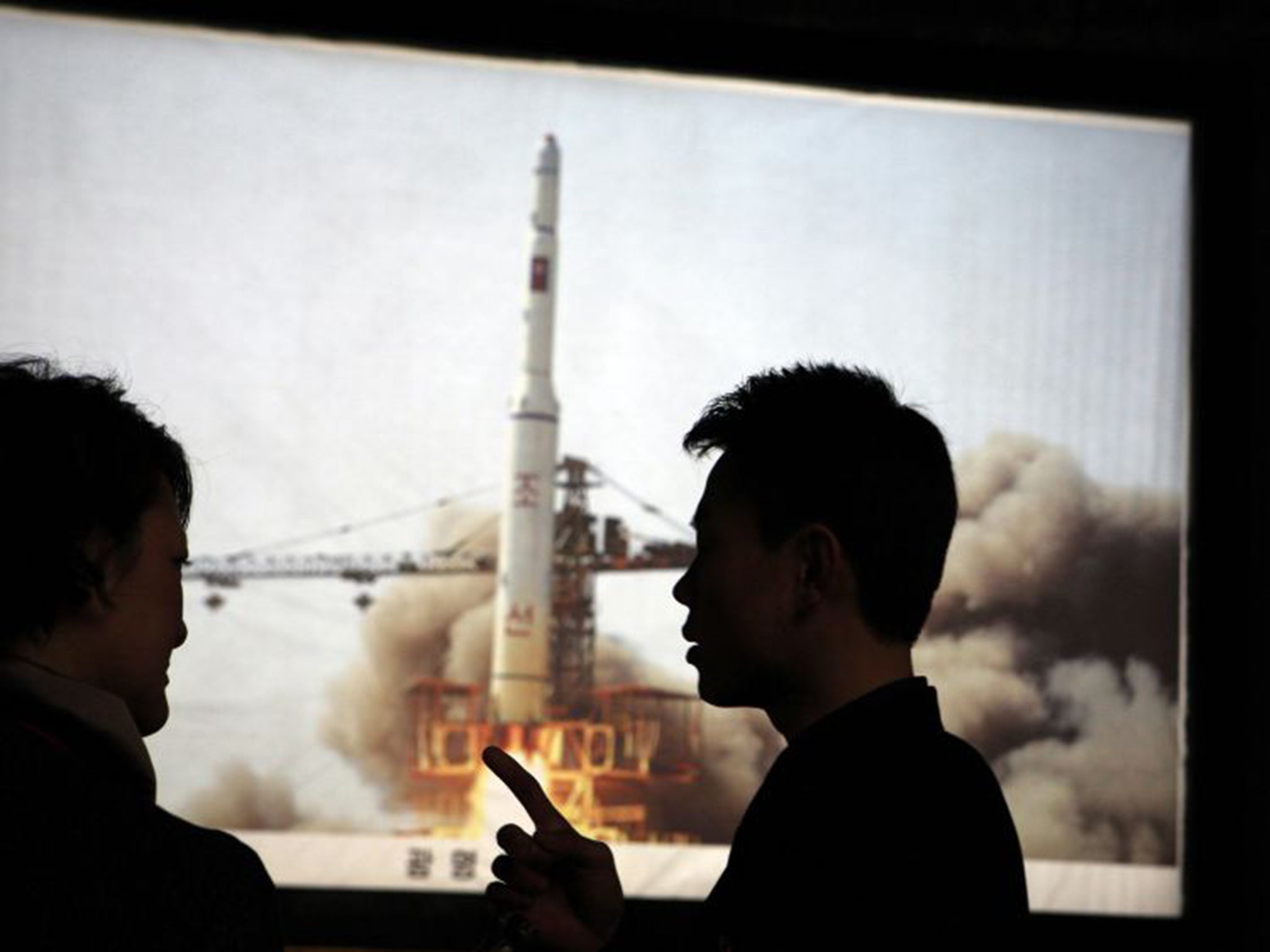North Korea launches long-range test rocket, South Korean officials confirm
Pyongyang says its rocket launches are satellite missions, but the US, South Korea and others say they are a covert test of ballistic missile technology

Your support helps us to tell the story
From reproductive rights to climate change to Big Tech, The Independent is on the ground when the story is developing. Whether it's investigating the financials of Elon Musk's pro-Trump PAC or producing our latest documentary, 'The A Word', which shines a light on the American women fighting for reproductive rights, we know how important it is to parse out the facts from the messaging.
At such a critical moment in US history, we need reporters on the ground. Your donation allows us to keep sending journalists to speak to both sides of the story.
The Independent is trusted by Americans across the entire political spectrum. And unlike many other quality news outlets, we choose not to lock Americans out of our reporting and analysis with paywalls. We believe quality journalism should be available to everyone, paid for by those who can afford it.
Your support makes all the difference.North Korea has defied international warnings and launched a long-range rocket that the United Nations and others call a cover for a banned test of technology for a missile that could strike the US mainland.
The rocket, fired from North Korea's west coast and tracked by the governments in South Korea and Japan, came about two hours after an eight-day launch window opened on Sunday morning. It follows North Korea's widely disputed claim last month to have tested a hydrogen bomb. It will be considered a further provocation by Washington and its allies and likely draw more sanctions and condemnation from the UN.
A South Korean defence official, speaking on condition of anonymity because of office rules, said the launch from the North's west coast launching pad was made between 9:30am and 9:35am local time, but gave no other details. Japan's NHK broadcaster reported that debris from the launch was believed to have fallen about 250 kilometers (155 miles) off the southwest coast of the Korean Peninsula into the East China Sea about 14 minutes after the launch.
NHK also showed footage of an object visible in the skies from the southern island of Okinawa that was believed to be the rocket.
Japanese chief Cabinet spokesman Yoshihide Suga told reporters that no debris fell on Japanese territory.
South Korean President Park Geun-hye convened an emergency national security council meeting after the launch.
North Korean rocket and nuclear tests are seen as crucial steps toward the North's ultimate goal of a nuclear armed long-range missile arsenal. North Korea says its nuclear and missile programs are necessary to defend itself against what it calls decades of US hostility.
Leader Kim Jong-un has overseen two of the North's four nuclear tests and three long-range rocket tests since taking over after the death of his father, dictator Kim Jong-il, in late 2011. North Korea says its rocket launches are satellite missions, but the US, South Korea and others say they are a covert test of ballistic missile technology. The UN Security Council prohibits North Korea from nuclear and ballistic missile activity.
The 6 January nuclear test has led to another push in the UN to tighten sanctions. In 2013 North Korea also did a nuclear test and then unnerved the international community by orchestrating an escalating campaign of bombast, including threats to fire nuclear missiles at the US and Seoul.
The Korean border is the world's most heavily armed and the rivals' navies occasionally trade gunfire near a disputed boundary in the Yellow Sea.
North Korea has spent decades trying to develop operational nuclear weapons.
It is thought to have a small arsenal of atomic bombs and an impressive array of short- and medium-range missiles. But it has yet to demonstrate that it can produce nuclear bombs small enough to place on a missile, or missiles that can reliably deliver their bombs to faraway targets.
Still, the North's nuclear tests and steadily improving long-range rocket launches push its nuclear aims further along.
North Korea has said that plutonium and highly enriched uranium facilities at its main Nyongbyon nuclear complex are in operation.
AP
Join our commenting forum
Join thought-provoking conversations, follow other Independent readers and see their replies
Comments